Volunteer Michael Holly, along with two other medics from the US, visited the Donetsk region for three weeks to help local civilians and the military. The team of volunteers also helped to rescue historical artifacts from a Ukrainian history museum in the combat zone and bring them to Kyiv.
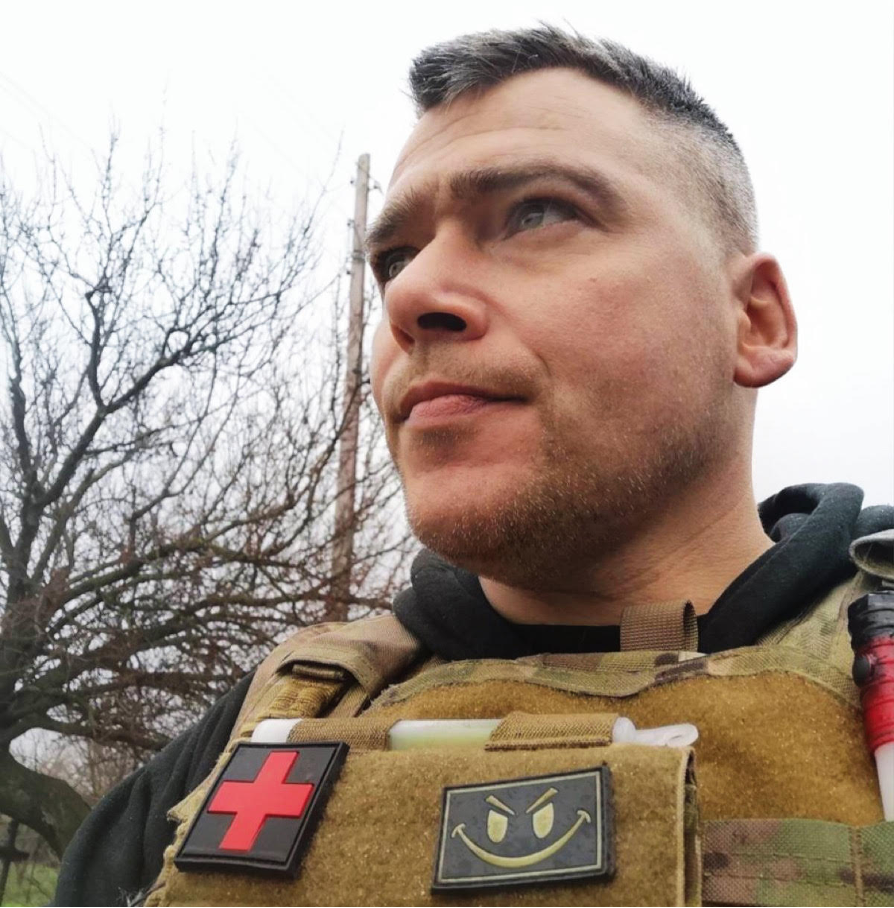
JOIN US ON TELEGRAM
Follow our coverage of the war on the @Kyivpost_official.
Please tell us about your trip and your impressions.
Two other volunteers and I visited the Donetsk region - Mariyvka, Katerinivka, Kyrakhino, and other villages near the frontline - trying to provide immediate medical care for the local community, especially elderly people and children in the frontline areas.
The trip's goal was also to supply Ukrainian soldiers with trauma kits and armor plates that added to the body armor, providing additional mechanical protection against the ‘elements’ (buckshot, bullets, bomb fragments, and shells). Also, we saved many items from a historical center there and took them to Kyiv.
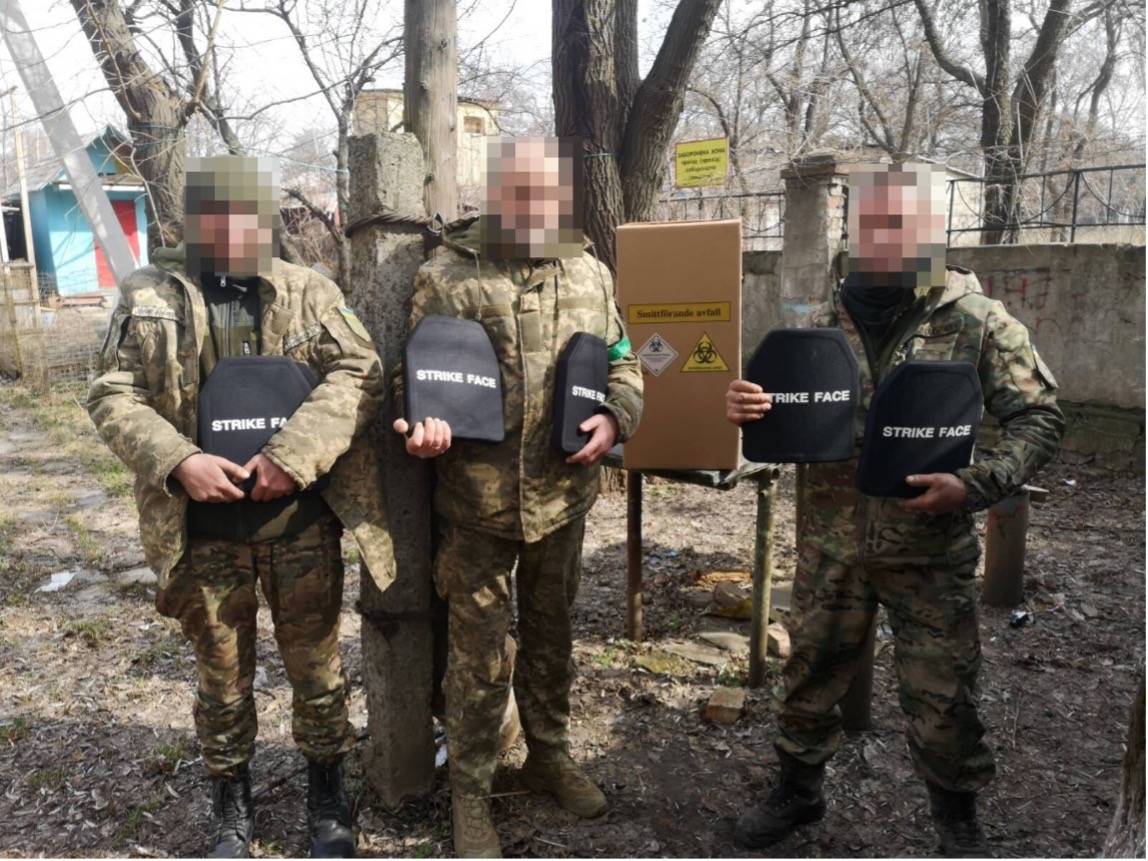
Ukrainian soldiers being supplied with armor plates in Donetsk region. Photo credit Michael Holly.
Primarily, we assisted locals with chronic sicknesses - low or high blood pressure, and heart disease.
I looked after one Ukrainian guy that probably had his leg cut off. There was this man with an infected shrapnel wound in his leg - still walking and wanting to fight. He has three children. I said if this infection gets into your blood, you are dead – the wound was all black. We helped him to clean it and drove him to the hospital in the nearby village. This is a typical situation in the warzone.

UkrFerry’s Wartime Survival: “Whatever the Wind, You Need to Keep Your Sails Up”
We cared for elderly people. One woman had an infected from a third-degree burn on her leg. We cleaned and dressed it, then visited her later to ensure she was using the medications and changing the dressings. She had no painkillers or antibiotics, so we helped her a lot.
There was one very disabled guy staying with his mother in a frontline village. We helped to get special liquid versions of his medications because he couldn't swallow due to his disability. We supported military tactical evacuation medics with antibiotics because of severe wound infections.
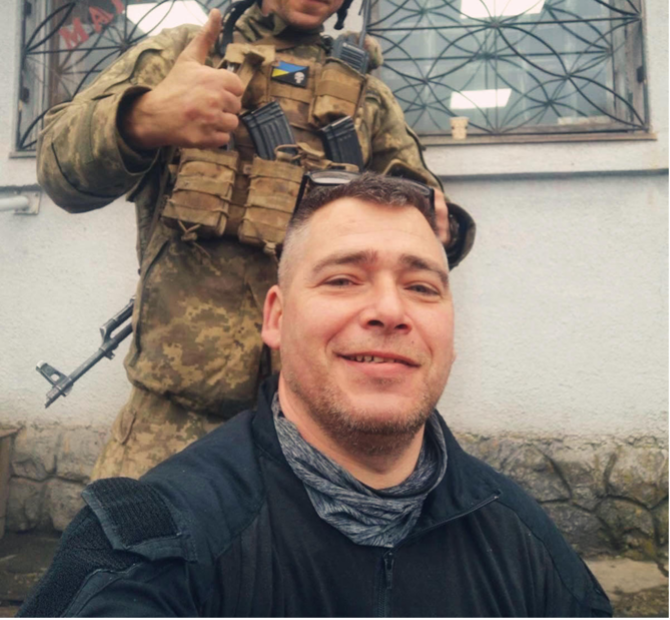
Michael Holly helping the Ukrainian military in the Donetsk region. Photo credit Michael Holly.
I think the Ukrainian military fighters are also desperate there because the area was very shelled badly on the day, and we got a request from the militaries for antibiotics. Police wouldn’t let us drive there because of the shelling, but they needed medications so badly that a doctor risked his life and drove us through the artillery shelling to get the antibiotics.
After that he got us back through the shelling so we could administer treatment to the defenders. They desperately needed post-operative antibiotics because their shrapnel wounds were contaminated with dirt. And there were many people with such severe wound infections.
A septic bacterial infection can kill a person in twelve hours, so, they need it quickly.
Do they understand English? How did you communicate?
It was very difficult. We used our hands - showing boxes of medicine, and using Google Translate in Russian and Ukrainian. When we met somebody, we would show a card with questions translated into Ukrainian about the health and medical conditions of the person, and people respond to us - yes or no.
Then, we could look at the person's needs and provide the treatment required. We don't provide medications such as valium for cardio disease – though there are a lot of such requests. But it's dangerous because if there is a miscommunication and the medication is wrong, you could kill somebody.
How did you find the people that required help?
We went to villages and make it clear that we are medics by wearing a special patch on our uniforms. Between mortars, we knocked on the doors of houses and offered our help, asking the people if they are ok, and people would tell us what they needed.
Are people that were living in the frontline villages desperate?
Yes, they are hugely desperate. Hungry, sick, and nowhere to go. They stay because they don't have accommodation in other places. There are some places, but they are full. Also, these people often are elderly or disabled, and it’s difficult for them to travel.
Did you see any children in the war zones?
Yes, I personally saw six children of ages 2 to 14 years in Katerynivka (Donetsk region). They walk on the streets during shelling as if nothing is happening. In the frontline zones, there is constant bombardment and no schools or medicine. People are hungry and sick. They cook food on open fires. I think these children should be forcibly evacuated. If parents fail to protect children's rights and provide safety, the state should step up. I know that Ukrainian authorities are working to develop legislation to help these children.
Do people in war zones live in basements?
No, they have acclimated. Maybe for the first three months, you hide in the basement, and then you think I'm sick of living in the basement. I’m not dead yet - shelling has become the new normal.
Do they have food, water, electricity, and medical care in the war zones?
Yes, there is one little, small shop in Katrenivka and Kurakhovo, the bigger nearest village. Doctors are also in Kurakhovo. There is power from generators. Most people I've seen cook on an open fire, but they don't have a lot to cook. There is a massive problem with the water supply even in Kurakhovo. We spoke to many people, and they complain that there are problems with the water. We delivered thousands of water purification sachets, but more is needed for the population Kurakhovo area – there are around 10,000 people there.
Are the people leaving there pro-Russian, maybe, or pro-Ukrainian?
I think these people are more Ukrainian and patriotic, but some people have a tracksuit with Russian flag colors on - that always makes me slightly nervous. Maybe they would just cut my throat – I didn't know.
These are mixed because elderly people lived in 60 to 70 percent of their life in the Soviet Union. In the last 30 years, it has changed, but this change was when some of these people were 50 years old.
I think what these people want is to stop seeing the suffering. I don't see a tremendous passion for politics from most people in the region. They just want to be safe.
Where have you been staying?
We've been there for three weeks period. We move all the time. We moved from the places we worked and didn't stay in the same places. We slept in the car or old houses. Just camping in Ukraine (he laughs).
What was the most dangerous situation you've been through?
When we were going to the scrapyard to get a steel plate for my car to stop shrapnel and bullets, there were people to help us. But one guy with Russian colors on his suit said, “Look, English people are here with a car” – and I thought maybe we should leave.
I think that people wearing Russian flag colors are pro-Russian, but I didn't ask. It was not healthy to ask. Anyway, it’s a small percentage of the people.
Did these people wearing Russian flag colors ask you something?
Yes. “What are you doing? Why are you here?” But even these people were satisfied that we were trying to help the locals.
I explained that we were not playing politics and that we were here to care for the sick. They don’t like it but are glad somebody is going to these villages to do this.
Are there any funny things that happened to you there?
I got wounded visiting the warzone last year and got bruised badly. I was in England for three months recovering before coming back, and now I still jump when something blows up. It makes the locals laugh because they’ve got used to these sounds. Everybody was like, “Look. He is really nervous.”
Also, when we were saving artifacts from the Ukrainian cultural center that we have now moved to Kyiv for preservation, the KIWI care was founded - they supplied vehicles. So, we were clearing out the museum - the storyboard with old photos and other items - while tanks and armored vehicles were outside firing artillery.
We were carrying out historical stuff like it was important. And soldiers were telling us: “What are you doing? Are you crazy? Go, save yourselves!,” Then we found out that we had saved a Soviet Army museum from Russian shelling. That was funny.
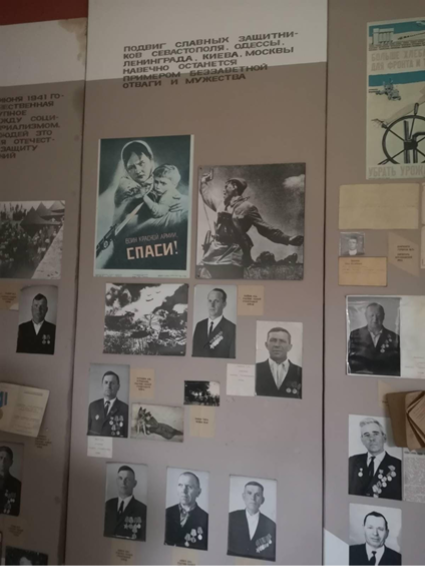
The historical photos that Michal Holly saved from a Soviet Army museum. Photo credit Michael Holly.
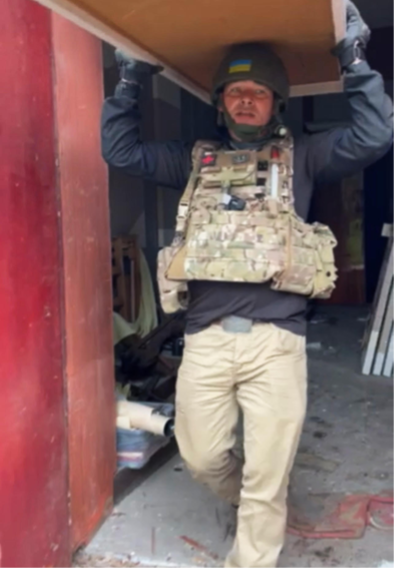
When you save people and heal their wounds - the person comes back. But, if all history is lost, there will be only trauma. It is important to save history. We took detailed photos of the museum building so it can be reconstructed the same way.
You can also highlight the text and press Ctrl + Enter











